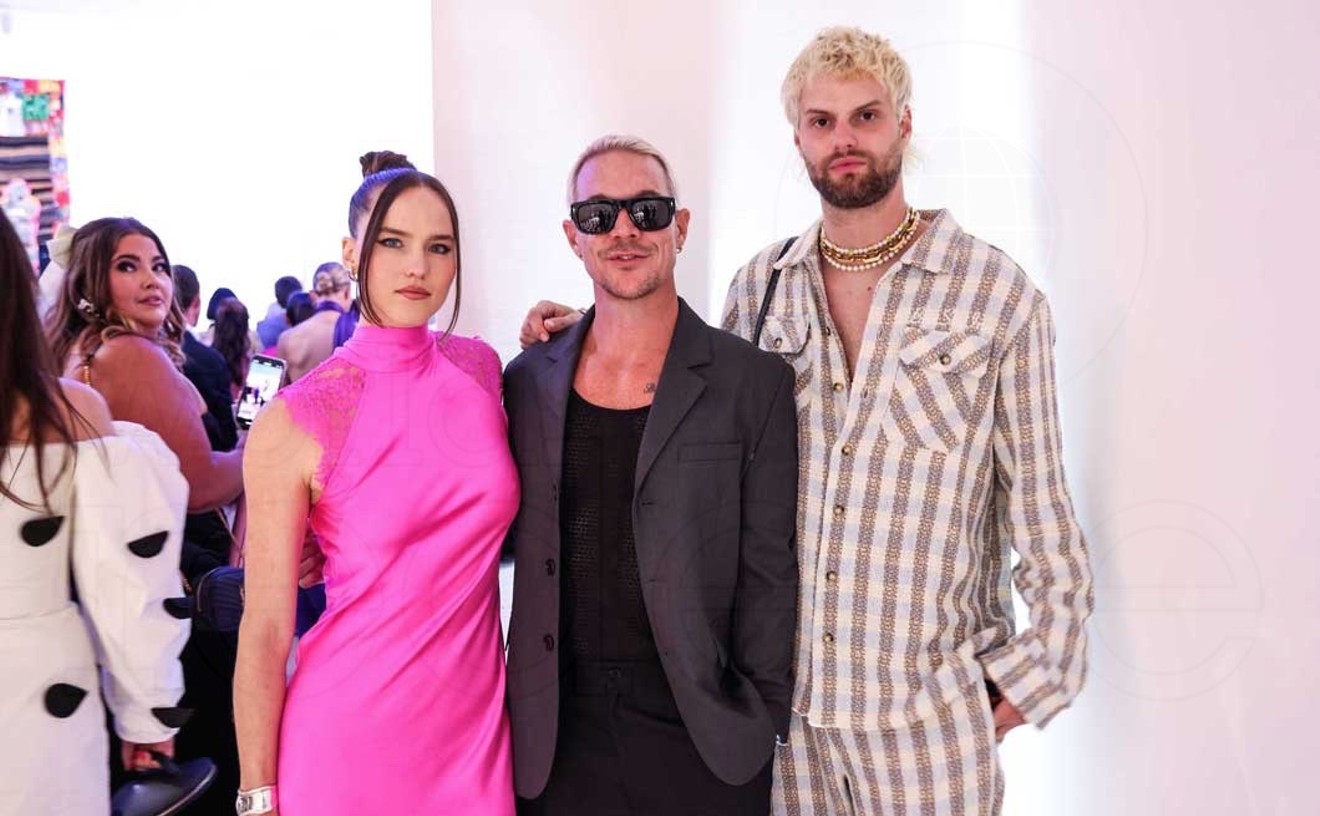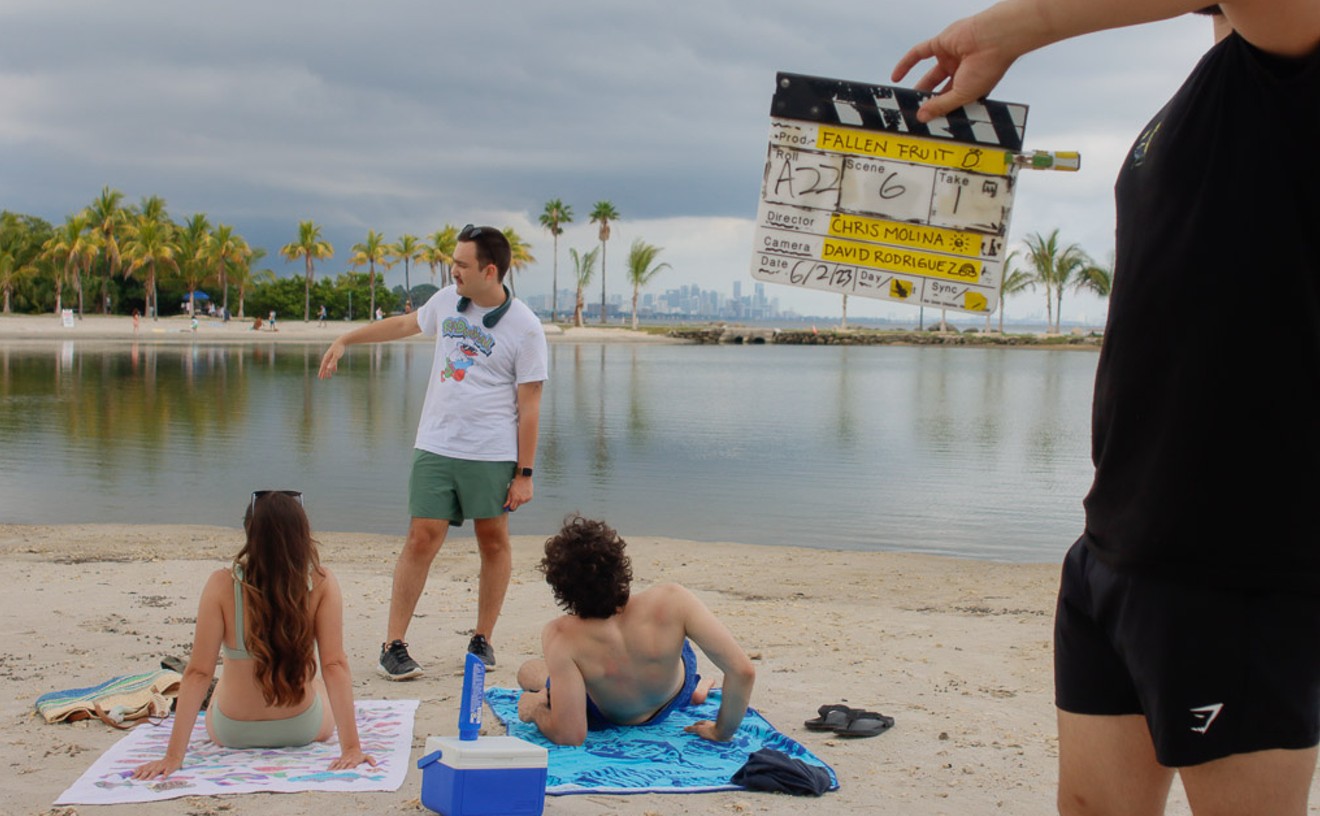Last week, something unusual happened in Miami: People were on time. Those who showed up for Cannonball's first of four Q&A Community Roundtables to talk about what it takes to win the Knight Arts Challenge were uncommonly punctual, especially for Miamians and extra-especially for Miami creatives. But as the application process draws to a close with submissions deadline on March 4, every second counts.
Applicants came out in droves with pens, notebooks, and laptops in hand to make sure they're prepared to submit the best idea in the bunch. But if you missed Knight's series of roundtables, don't worry. New Times is going to break it down for you step by step.
Since its first Challenge in 2008, the Knight Foundation has sought to invest in artistic excellence, funding projects that enrich and engage the communities that produce them. In the last six years, they've donated $19.4 million to 143 winners out of a total 6,611 applicants. The challenge has been renewed for three more years, with $9 million to give away. This year is the largest pool of applicants it's ever had, and competition is cutthroat.
Tatiana Hernandez, art associate for Knight, referred to the Challenge as being "harder to win than a seat at Harvard, which is actually true according to the math."
She briefed the audience on their initial submissions, saying they should have a few simple goals:
1. Come up with a catchy title.
2. Don't write it in isolation. Share your ideas with people who can be objective.
3. Make it simple for readers to understand.
4. Individual artists shouldn't start the application with "I". It's about the community.
5. Submit as soon as you can. Get readers when they're fresh; don't wait 'til the last minute.
"You have 150 words to get somebody to be like, 'You know what? I want to go to that.' Or, 'That's really interesting, I want to hear more about that,'" Hernandez said.
It's a thumbs up or thumbs down decision for the first round, because an average of 1,200 to 1,300 ideas are submitted to a panel of ten community members and three staff members who read every single one.
Still have questions? It's OK, the audience did too:
Can you apply for more than one project at a time?
Hernandez: "Yes, as many times as you like, but be mindful that the contest is asking for your best idea."
Can you resubmit an idea you've submitted last year?
"Yes, because the readers change every year. Every year it's a fresh panel of readers."
Do you specify the amount of money you're asking for?
"We do not ask how much money in the first round. Do not put in how much money you want; we don't care at this point. Don't waste your characters on dollar signs and zeros."
Will it help your chances as a smaller organization to team up with a bigger organization?
"Partnerships matter. It's not so much about validation, but it's about context. Who are you partnering with? How does that make sense for your project?"
How much are the grants worth?
"Anywhere from $10,000 and $300,000."
Do you have to mention site specific work in the initial application?
"If it matters, start there. As a reader, I need to be able to say, 'I can visualize this,' if it becomes too conceptual, it becomes very difficult."
Can your submit your application in different languages?
"We do accept applications in Spanish, English, and Haitian Creole."
Can the project take place in different languages?
"You can fund in different languages. Your project can take place in different languages."
Is there a preference where the art takes place? Schools, community centers, street corners?
"We do not go into this process with any preset notions of what we're looking for or who the winner should be. We're reading this completely blind and waiting to see what people come up with in the community."
Can we start the project before we get the grant?
"Start the project whenever you like, but we don't release the funds until you raise the match...dollar for dollar. Focus on the fundraising first and then implement. It works out a lot better that way."
Would you consider a project that has been implemented in another city but nothing like it exists in Miami?
"Absolutely. We are talking innovative ideas within the context of our community, so if 21,000 other places have it and we don't? Great."
If you've already been funded, can you apply for the same idea but bigger?
"Make it big, real big. Definitely you need to make a compelling argument for why it's going to grow."
Previous Challenge winner, Naomi Fischer for WEIRD MIAMI, posed her own questions to curious audience members: "How is what you're doing different? How does it fulfill a need in the community or a need as an artist to propel you to another level? Who are you? If you can, toss in a sentence of who you are and why it's important for you to do it."
Another winner, Mario Ernesto Sanchez for International Hispanic Theatre Festival, helped conclude the open forum. "Make sure the paragraph is very concise and to the point," he advised. "Write a paragraph about the project, not about the money."
The Knight Arts Challenge deadline is March 4. Visit knightarts.org.
Follow Cultist on Facebook and Twitter @CultistMiami.










